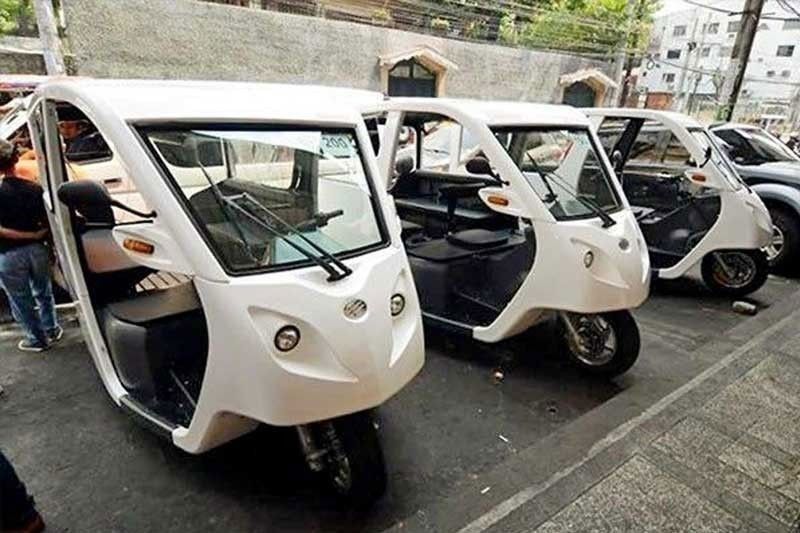Government eyes EV-dedicated manufacturing zone

MANILA, Philippines — The government plans to develop dedicated zones that will house locators engaged in the electric vehicle (EV) manufacturing industry, as part of its strategy to develop the sector.
In a presentation at the Philippine Electric Vehicle Summit (PEVS), Trade Undersecretary for Innovation and Competitiveness Group Rafaelita Aldaba said that developing the EV infrastructure is part of the EV industry strategy.
“The infrastructure would cover the development of dedicated zones and robust transport facilities that will be tailored for EV manufacturing and R&D (research and development),” Aldaba said.
On the sidelines of the summit, Aldaba told reporters that such zones would be where EV-related manufacturing firms would be located, such as parts manufacturers and assembly.
“This is good because it will be a cluster so that the logistics will be faster,” she said.
Aldaba said that having an EV cluster would also be something the country could highlight to attract more investors.
The Trade official said the development of EV-dedicated zones would be done in coordination with ecozone-related agencies such as the Philippine Economic Zone Authority (PEZA) and the Authority of the Freeport Area of Bataan (AFAB), among others.
As part of its push to develop the EV industry, Aldaba said the government plans to incentivize the manufacture of four million EV units in the next 10 years through an EV incentives scheme.
“Based on our calculations, we are looking at incentivizing four million EVs in the next 10 years, majority of which will be two wheelers and e-trikes, along with e-PUVs (public utility vehicles) and e-bus,” Aldaba said.
“We are looking at setting the local production targets to be achieved within eight to 10 years from last year, from the promulgation of the EV incentive strategy (EVIS),”Aldaba said, noting that incentives under the scheme would be time bound and performance-based.
Aldaba said the purpose of the incentives scheme is to narrow the cost gap between EVs and the traditional vehicle models, adding that this is in line with facilitating and accelerating the shift to EVs.
The Trade official shared that an important component of the EVIS is the e-PUV program, which focuses on the manufacture of the commercial vehicle model.
“This is going to be a CARS (Comprehensive Automotive Resurgence Strategy)-like program, the manufacturing of commercial vehicles. This is going to complement the CARS program, but of course it will be dedicated toward jumpstarting the local manufacturing of commercial EVs in the country,” Aldaba said.
Under the program, the country aims to build its automotive manufacturing capacity and capabilities for flagship commercial vehicle model, the e-PUV, that can compete in the global market in the future.
“And this is important to enable us to develop our capabilities in the manufacture of light truck platforms and special purpose vehicles to cater to the domestic and export markets,” Aldaba said.
Aldaba explained that for the manufacturing support component of the wider e-PUV plus program, incentives to be given to manufacturers of two-wheeler, three-wheeler EVs, auto electrics, charging stations, as well as mining and processing of green metals for EV will be those offered under the CREATE Act.
While the manufacture of passenger EVs, such as sedans and SUV may also qualify for CREATE incentives, Aldaba said the government is also looking to transfer the third slot under the CARS program.
In addition, Aldaba said the government is also looking to provide incentives to EV battery manufacturers, particularly 50 percent of capital expenditures excluding land, maximum of P3 billion
“So, we’re looking at providing support amounting to 50 percent of the capex,” Aldaba said.
The incentive scheme will also offer a wider e-PUV plus program, which also extends subsidies to EV users.
- Latest
- Trending


























